Is Rice Vegan? Exploring the Truth
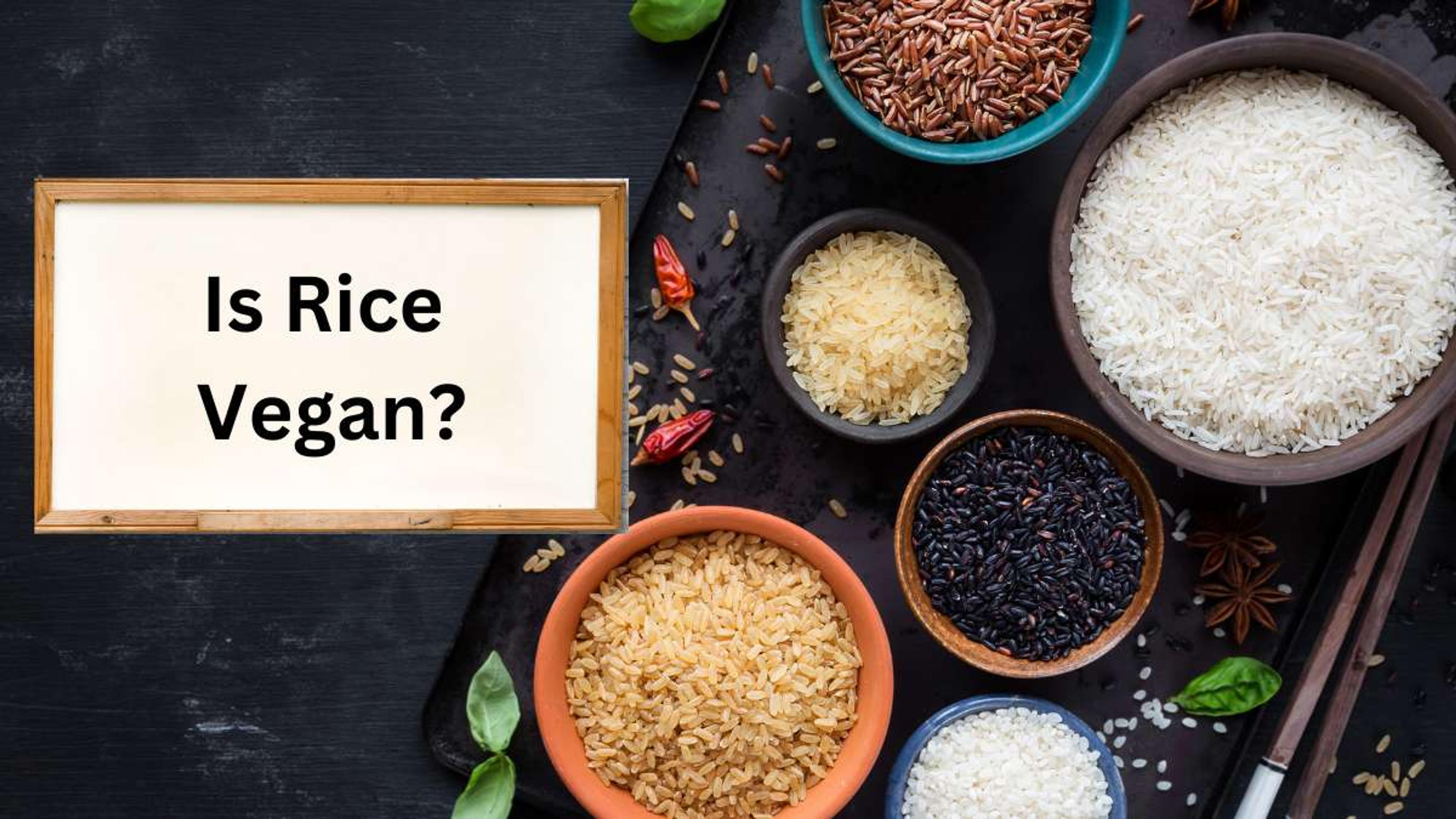
- Key Takeaways
- Is Rice Really Vegan?
- Nutritional Considerations of Rice for Vegans
- Rice and the Vegan Lifestyle
- Vegan Considerations in Rice Products
- Special Considerations for Environmental Veganism
- Conclusion
- FAQs
Are you curious about the vegan status of your favorite grain, rice? As a staple in many diets across the globe, rice is loved for its versatility and delicious taste. This article will guide you through everything you need to know about whether or not rice is suitable for vegans, including its nutritional benefits and how it fits into a plant-based diet. Did you know that African rice, also known as Oryza glaberrima, is a type of long grain rice that is native to West Africa and is a great source of protein and fiber for vegans?
Ready to unravel this common query? Let’s get started!
Key Takeaways
- All types of rice, such as brown, white, jasmine, and black, are vegan-friendly.
- Rice is a valuable source of carbohydrates and fiber for vegans.
- While rice itself may not be rich in protein content, it can be paired with plant - based sources to create balanced meals.
- It's important to read product labels and seek vegan-certified options when choosing processed rice products.
Is Rice Really Vegan?
Absolutely! Rice is considered 100% vegan because it is a plant-based food that does not involve the use of animals or their by-products in its production. All types of rice, including brown, white, jasmine, and black rice, are vegan-friendly.
Different types of rice, such as brown, white, jasmine, black and wild rice can be explored to confirm that rice is vegan by nature.
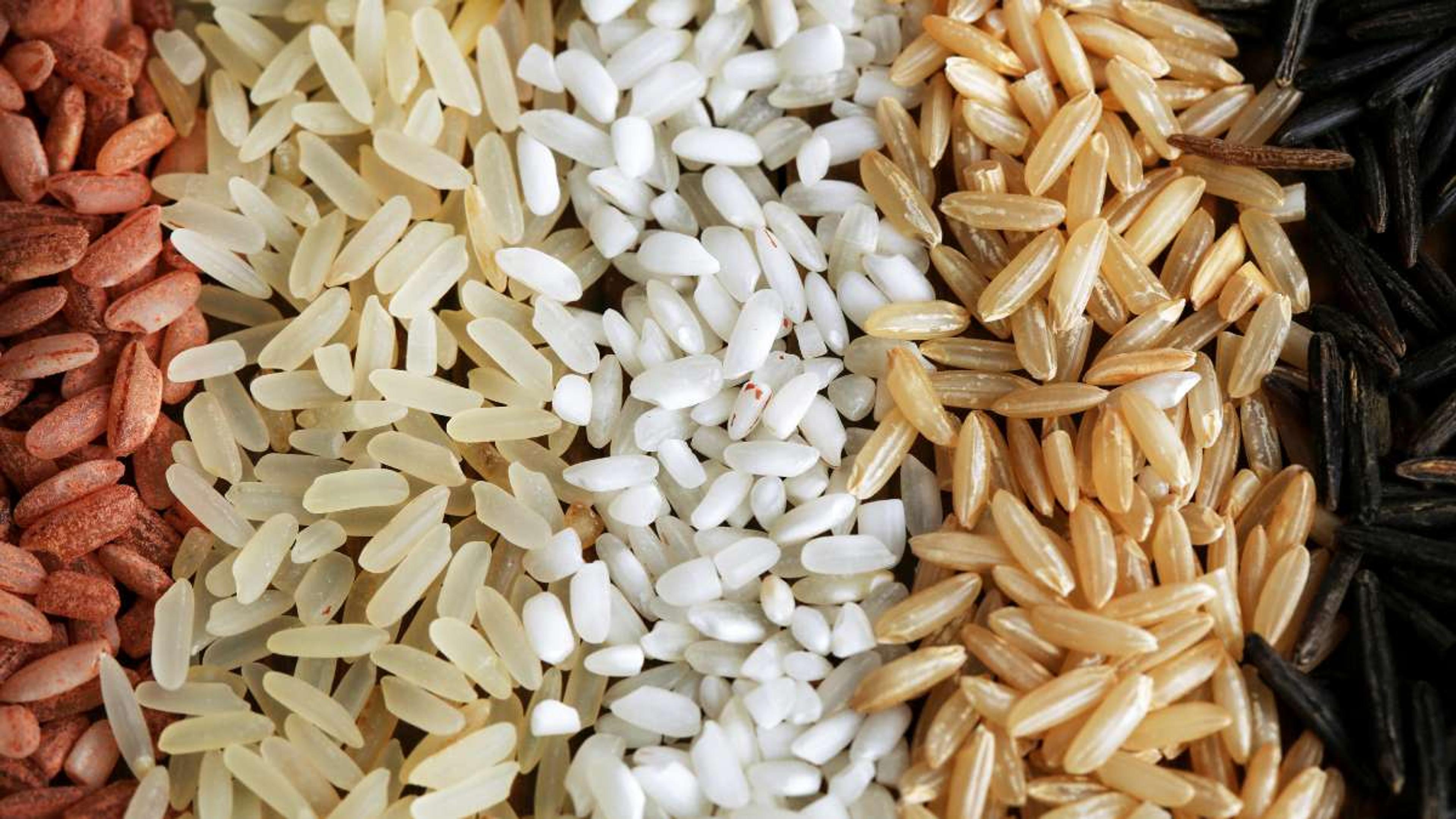
Exploring different types of rice
Rice is considered a staple food in many countries around the world, with Asia being the largest producer and consumer of rice globally. Various types including a number of variants in each type (depending on the country, region etc) of rice exist, each offering a unique set of characteristics and nutritional values. However, it can be broadly categorised as follows;
- Brown Rice: Preferred by health-conscious vegans, brown rice retains the outer husk, bran and germ. This inclusion makes it rich in fiber and several essential nutrients.
- Red Rice: Red rice is a type of whole grain that is reddish-brown in color, from the antioxidant-rich bran layer that remains intact during processing. Red rice and brown rice are both nutritious options for vegans, but they do have some differences. While both types retain the outer husk, bran, and germ, red rice gets its reddish-brown color from the antioxidant-rich bran layer that remains intact during processing. This gives red rice a slightly nutty flavor and a chewy texture. However, brown rice is known for its earthy taste and slightly softer texture compared to red rice. In summary, they differ in their anti-oxidant content.
- White Rice: Known for its soft texture after cooking, white rice is vegan-friendly. It undergoes a refining process where the hull, bran layer, and cereal germ are removed.
- Jasmine Rice: Originating from Thailand, jasmine rice brings fragrance into your dish. The good news for vegans - it's 100% vegan.
- Black Rice: Gifted with a deep purple hue when cooked, black rice contains anthocyanins which are powerful antioxidants. This feature marks it out as an excellent choice for vegans seeking to boost their diet's nutritional value.
Confirming that rice is vegan by nature
In its natural form, rice falls squarely within the vegan category. It comes from the seed of a plant called Oryza, making it entirely plant-based and suitable for those following a vegan diet.
There are numerous variants including brown rice, red rice, basmati rice, and white rice which all cater to different tastes but maintain their vegan-friendly status.
Being gluten-free in its natural form further increases its appeal particularly among those embracing both gluten-free and vegan lifestyles simultaneously. Not only is it devoid of animal-derived ingredients but also any other food substances that might raise dietary concerns such as gluten.
So regardless of its type - short grain rice or long grain, basmati or jasmine - when you reach for a bag of unprocessed raw rice in its natural form in the grocery store aisle you can rest assured knowing it's gluten-free and 100% vegan by nature.
Nutritional Considerations of Rice for Vegans
Rice is a valuable source of carbohydrates for vegans, providing energy and fuel for the body.
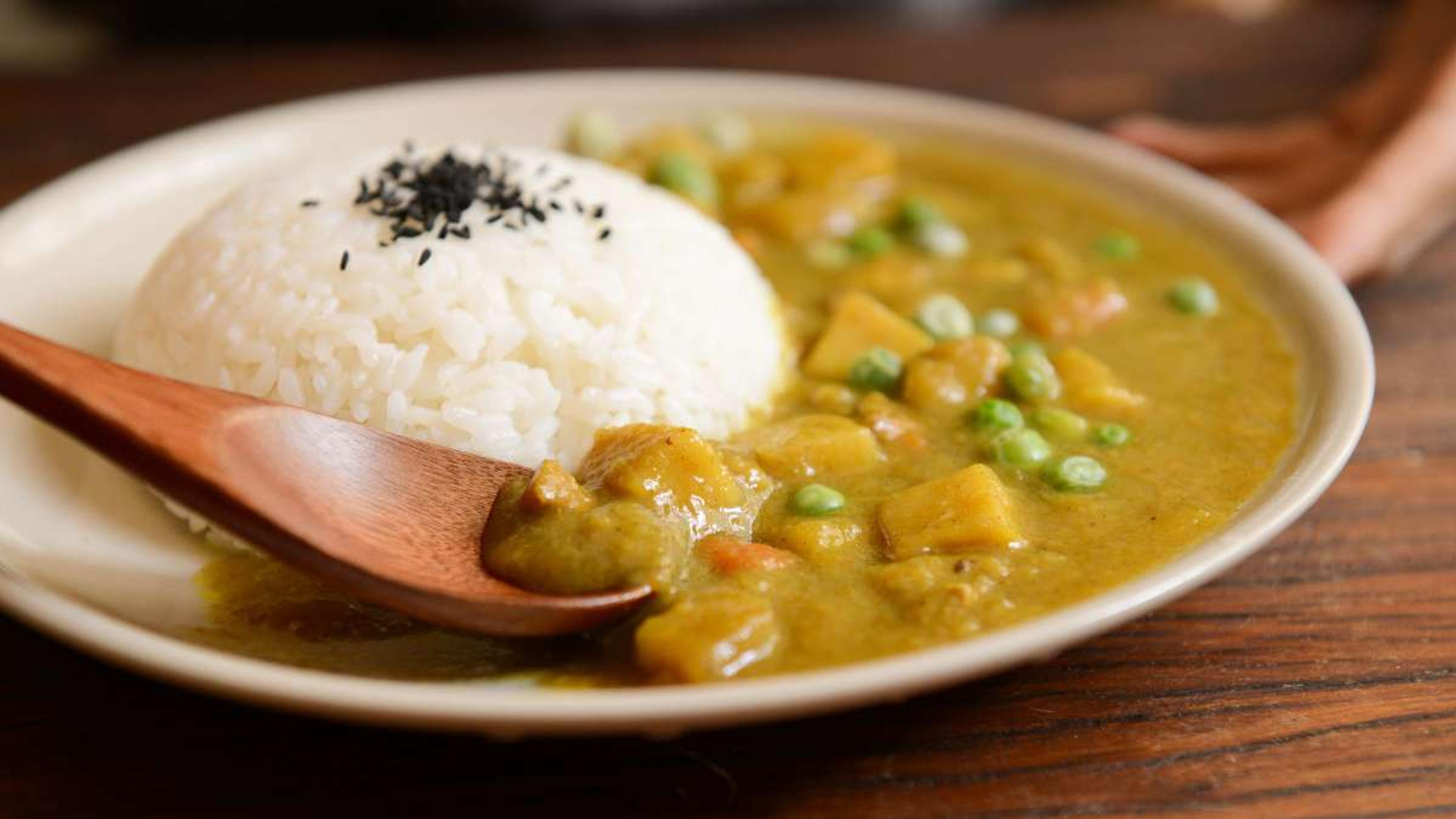
Carbohydrates and fat content in rice
White and brown rice are staples in many diets due to their high carbohydrate content, specifically starch. Consuming one cup of cooked white rice can provide over 53 grams of carbs, fueling the body with quick energy. It is important to note that consuming large amounts of rice can cause spikes in blood sugar levels, which can be harmful to those with diabetes or other blood sugar-related conditions.
Alternatively, brown rice, while still a rich source of carbohydrates at roughly 46 grams per cup, has an added benefit. It contains two grams of fat that aid absorption of essential fat-soluble vitamins by the body. Most people opt for red rice over white rice, the fundamental reason being; white rice digests faster and makes you hungry again faster whereas red rice takes relatively longer to digest keeping you feeling quite full for comparatively a longer period of time. Additionally, there are many different rice varieties available, each with their own unique nutritional benefits.
Interestingly, despite this abundant carb supply, both types remain low in fiber which makes them easy-to-digest foods for most individuals. Rice helps vegans meet their daily calorie needs without resorting to animal-based sources or heavily processed substitutes.
While it does contain some healthy fat (especially brown rice), this is naturally occurring and not saturated or trans-fats associated with health problems when consumed excessively.
Rice as a source of fiber for healthy digestion
Rice is a valuable source of dietary fiber, which plays a key role in promoting healthy digestion. Fiber helps to regulate bowel movements and prevent constipation. Brown rice, in particular, is an excellent choice as it contains insoluble fiber that adds bulk to the stool and aids in the movement of waste through the digestive system. Whole grain rice is another great option for those looking to increase their fiber intake.
By including rice in your diet, you can support good gut health and maintain regularity. Additionally, fiber-rich foods like rice can lower cholesterol levels and reduce the risk of heart disease, making it an excellent source of nutrition.
Protein in rice and complementing with plant-based sources
Rice is not considered a significant source of protein on its own. However, you can easily complement the protein content in rice by incorporating plant-based sources into your meals.
When combined with beans, rice forms a complete source of protein as they contain all nine essential amino acids. Just one cup of rice and beans provides about 12 grams of protein.
Another option is to combine tofu, tempeh, pea and rice proteins, which together create a high-quality protein source. For vegans looking for other plant-based options, soybeans, quinoa, and spinach are also considered excellent sources of high-quality protein.
To incorporate more protein into your meals while enjoying rice as a staple food, consider adding these complementary plant-based sources to your dishes. Experimenting with different combinations will not only enhance the nutritional value but also provide variety in flavors and textures for an enjoyable vegan dining experience.
Rice and the Vegan Lifestyle
Rice is a staple in the vegan diet, serving as a versatile ingredient that can be used in various dishes and snacks.
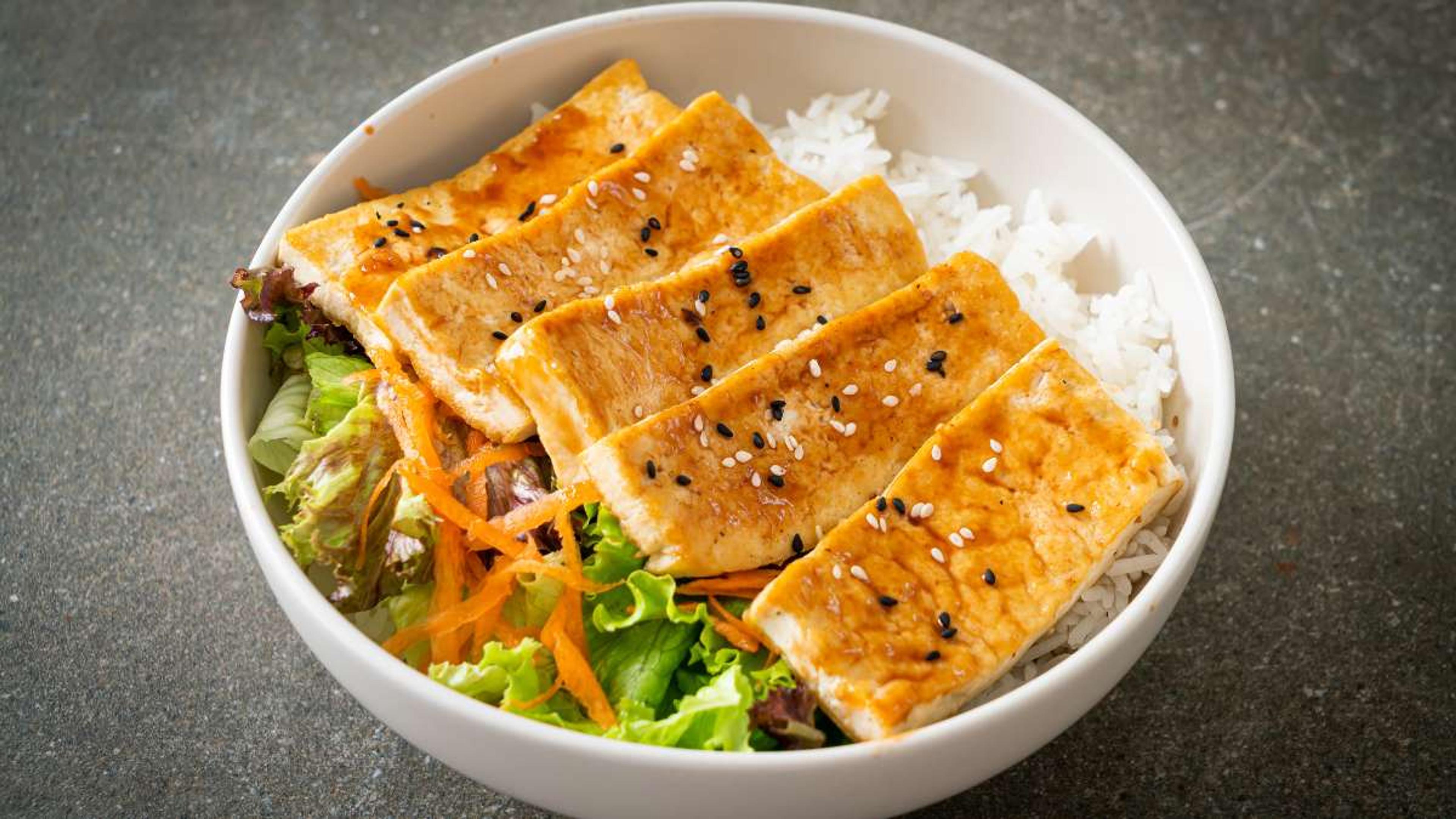
Rice as a staple in vegan diets
Rice plays a crucial role as a staple food in vegan diets. It provides essential nutrients like carbohydrates and fiber, which are important for maintaining energy levels and promoting healthy digestion.
Whether it's white rice, brown rice, or any other variety, rice is a versatile grain that can be used in numerous dishes such as stir-fries, pilaf, risotto, and sushi. Its neutral flavor allows it to easily complement the flavors of various colourful vegetables, leafy green vegetables such as broccoli and plant-based proteins.
With its availability, affordability, and adaptability in various cuisines around the world, rice becomes an excellent choice for vegans looking to incorporate a nutritious and satisfying component into their meals without compromising their dietary preferences.
Rice is a versatile ingredient in main dishes, side dishes, and snacks
Rice is a truly versatile ingredient, making it an excellent choice for main dishes, side dishes, and snacks. It can be combined with various proteins like legumes, tofu, beans and vegetables to create flavorful and satisfying main courses.
Whether you're making stir-fries, pilafs, or even sushi rolls, rice adds substance and texture to any dish. Additionally, rice can be used as a base for delicious side dishes like fried rice or risotto.
And let's not forget about snacks! Rice cakes and crackers are popular choices for those looking for a quick and easy vegan snack option. With so many possibilities, it's no wonder that rice is loved by vegans all around the world.
Vegan Considerations in Rice Products
Identify potential sources of non-vegan rice and explore processed rice products for hidden non-vegan ingredients, while also emphasizing the importance of reading product labels and seeking vegan-certified options.
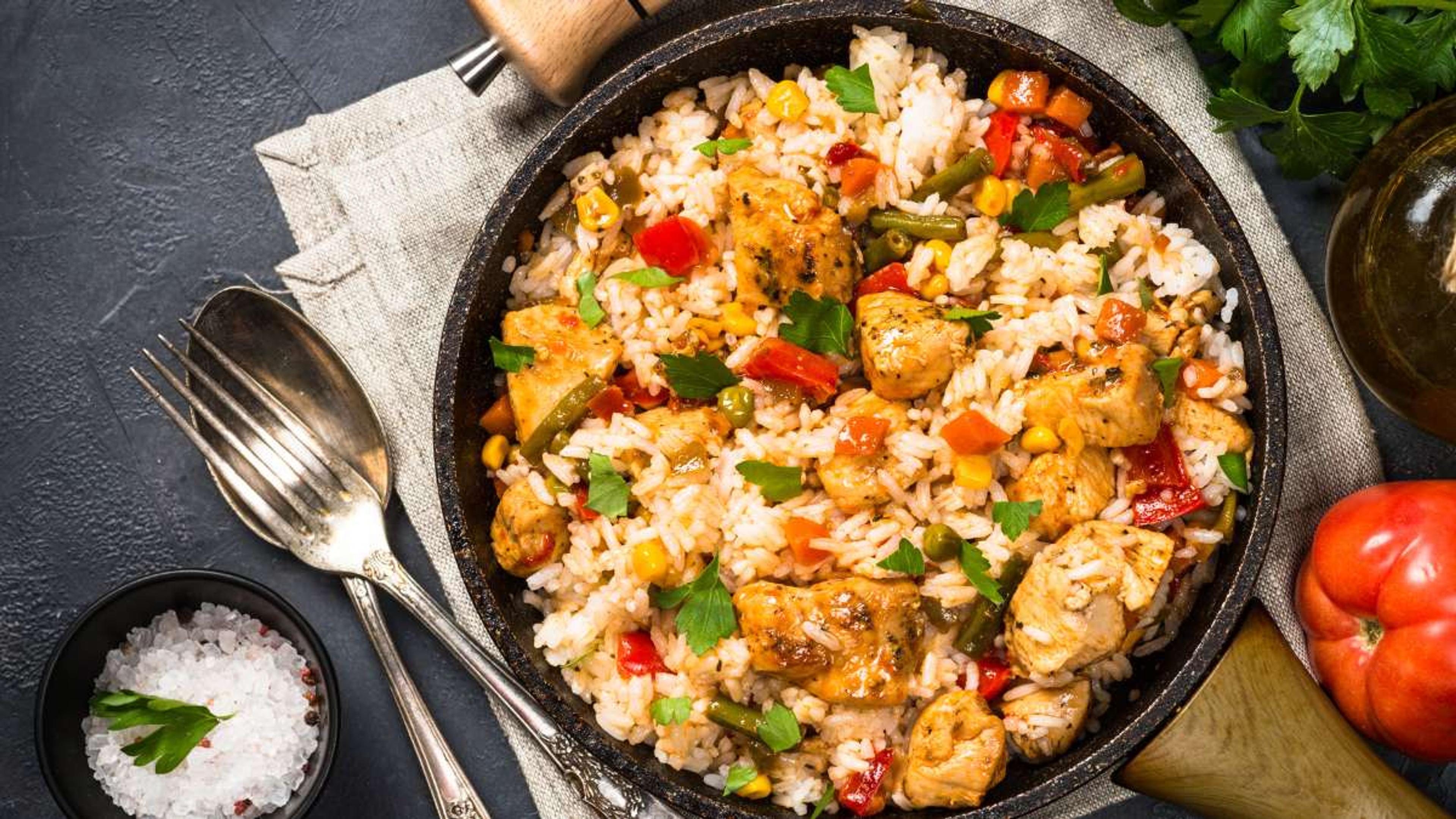
Potential sources of non-vegan rice
Some rice products may not be vegan-friendly due to the presence of animal-derived ingredients or non-vegan processing methods. It is important for vegans to be cautious when choosing rice products, as certain brands may use additives like butter, milk powder, or chicken broth.
Additionally, some processed rice products such as flavored microwaveable rice or pre-packaged rice mixes may contain hidden non-vegan ingredients. To ensure your rice is vegan, it is recommended to read product labels carefully and look for vegan-certified options that guarantee ethical sourcing and no animal-derived ingredients.
Reading product labels and seeking vegan-certified options
Consumers can ensure that they are choosing vegan products by following these steps:
- Check for the "vegan" label: Look for products that clearly state "vegan" on the packaging. This label assures consumers that the product does not contain any animal-derived ingredients.
- Look for vegan certification logos: Many organizations provide vegan certification logos, making it easier for shoppers to find certified vegan options. These logos are usually displayed prominently on the packaging, ensuring that consumers can make informed choices without constantly checking ingredient lists.
- Read ingredient lists carefully: While product labels may not always have a "vegan" label, reading ingredient lists can help identify non-vegan ingredients. Be on the lookout for common animal-derived ingredients such as eggs, dairy, gelatin, and honey.
- Beware of hidden animal products: Some non-obvious ingredients might come from animals. For example, some processed foods contain additives like casein or whey derived from milk. Learning about these hidden animal products will help in making better choices.
- Research online resources: Various websites and apps provide information about vegan-friendly products and brands. Utilize these resources to discover new vegan-certified options or to confirm whether a product meets your dietary needs.
Special Considerations for Environmental Veganism
Addressing the ethical and environmental impact of rice cultivation, including its effects on wildlife and ecosystems, is crucial for a more sustainable approach to veganism. If you're interested in learning more about this important topic, continue reading.
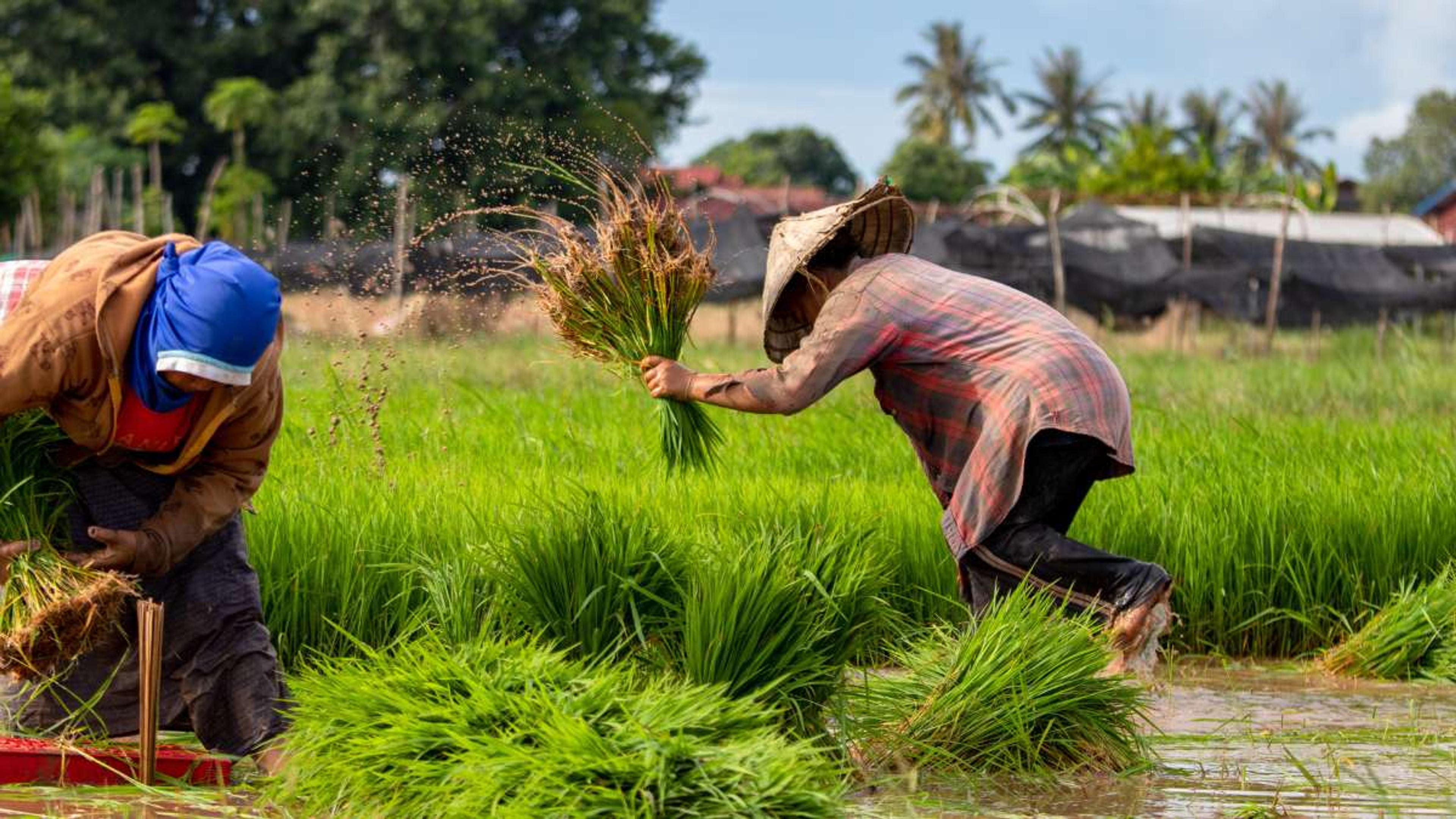
Addressing ethical and environmental considerations related to rice cultivation
Rice cultivation raises important ethical and environmental considerations. The article explores the impact of rice production on wildlife and ecosystems, shedding light on the potential consequences for our planet.
It emphasizes the need to choose sustainable rice sources as part of a more ethical approach to veganism. By understanding these considerations, we can make informed choices that align with our values and contribute to a healthier environment.
The impact of rice production on wildlife and ecosystems
Rice production has a significant impact on wildlife and ecosystems. In fact, rice cultivation contributes to the loss of natural habitats for various species and can disrupt delicate ecosystems especiallywith possible uses of pesticides.
These negative aspects need to be taken into consideration when practicing environmental veganism and striving for a more sustainable approach to food production.
Choosing sustainable rice sources for a more ethical approach to veganism
To adopt a more ethical approach to veganism, it is essential to choose sustainable rice sources. The cultivation of rice can have significant environmental impacts, including water pollution and greenhouse gas emissions.
By opting for sustainably grown rice, you can help minimize the negative effects on wildlife and ecosystems. Look for rice that is certified as organic or fair trade, as these options often prioritize sustainability practices.
By making conscious choices about the rice you consume, you can align your vegan lifestyle with a commitment to protecting the planet.
Conclusion
In conclusion, rice is indeed vegan. It is a plant-based food that comes in various types and can be a staple in the vegan diet. While some may have concerns about its environmental impact and processed forms, rice remains a versatile ingredient that can be enjoyed by vegans in numerous delicious recipes. Don't forget to consume rice in moderation as excessive consumption of rice can lead to weight gain & addition of additional carbs into your body - therefore key is to include rice in moderation for healthy living.
FAQs
1. Can vegans eat rice?
Yes, vegans can eat rice. Rice is a plant-based food that is a staple in the vegan diet. It provides essential carbohydrates and can be enjoyed in various recipes. However, it is important to consider the environmental impact of rice production and choose sustainable sources whenever possible.
2. Is white rice vegan?
Yes, white rice is vegan. It is a plant-based food that is widely consumed by vegans. However, it is important to note that the environmental impact of rice production should be taken into consideration, and choosing sustainable sources of rice is recommended for ethical vegans. Choosing organic or fair trade brown rice can help minimize negative effects on the planet.
3. Is brown rice vegan?
Yes, brown rice is vegan. It is a nutritious whole grain that is suitable for vegans. However, just like with white rice, it is important to be mindful of the environmental impact of its production and opt for sustainable sources whenever possible. Choosing organic or fair trade brown rice can help minimize negative effects on the planet.
4. Is basmati rice vegan?
Yes, basmati rice is vegan. It is a popular variety of rice that is widely consumed by vegans. As with any other type of rice, it is important to prioritize sustainable sourcing to minimize the environmental impact of its production. By making conscious choices, you can enjoy basmati rice as part of your vegan lifestyle.
5. Is yellow rice vegan?
Yes, yellow rice is vegan. It is a flavorful variety of rice that gets its vibrant color from turmeric or saffron. Yellow rice can be enjoyed by vegans as part of a delicious meal. Just like with other types of rice, it is important to consider the environmental impact and choose sustainable sources whenever possible. By doing so, you can savor the taste of yellow rice guilt-free in your vegan diet.
6. Is rice pudding vegan?
Yes, rice pudding can be made vegan. Traditional rice pudding recipes typically include dairy milk and eggs, but there are plenty of vegan alternatives available. Using plant-based milk such as almond milk or coconut milk, and sweetening it with maple syrup or agave nectar, can create a delicious vegan version of rice pudding. By making these substitutions, vegans can enjoy the creamy texture and comforting flavors of rice pudding without any animal products.
7. When would rice not be vegan?
Rice itself is inherently vegan as it is a plant-based food. However, there are instances where rice dishes or products may not be considered vegan if they contain animal-derived ingredients such as meat, seafood, dairy, or eggs. For example, dishes like fried rice with added eggs or rice cooked in chicken broth would not be considered vegan. It's always important to check the ingredients and preparation methods to ensure that the rice dish aligns with a vegan lifestyle.

